Out of the several active, live-action video game adaptations out there, one that doesn’t often get any flowers is Twisted Metal. While The Last of Us, a crowned-jewel in the Sony production house, runs its Emmy race, Twisted Metal runs its own—one where chaos and unadulterated fun is the focus. Even if the series were to achieve nothing else, it is undeniably fun and easy-to-digest TV.
In terms of conversion to the big screen, Twisted Metal reminds me of something like Mortal Kombat, or Street Fighter. The story, as it was in the game, is there, however, it tends to fall into the gaps of the primary focus of translating the game’s high-octane action for a viewing audience. The finale of the first series left John Doe, played by Anthony Mackie, captive inside the walls of New San Francisco as Raven’s unwilling pawn to compete in Calypso’s tournament, and Quiet, played by Stephanie Beatriz, bandied up with an all-girl gang of outsiders led by Doe’s long-lost sister.
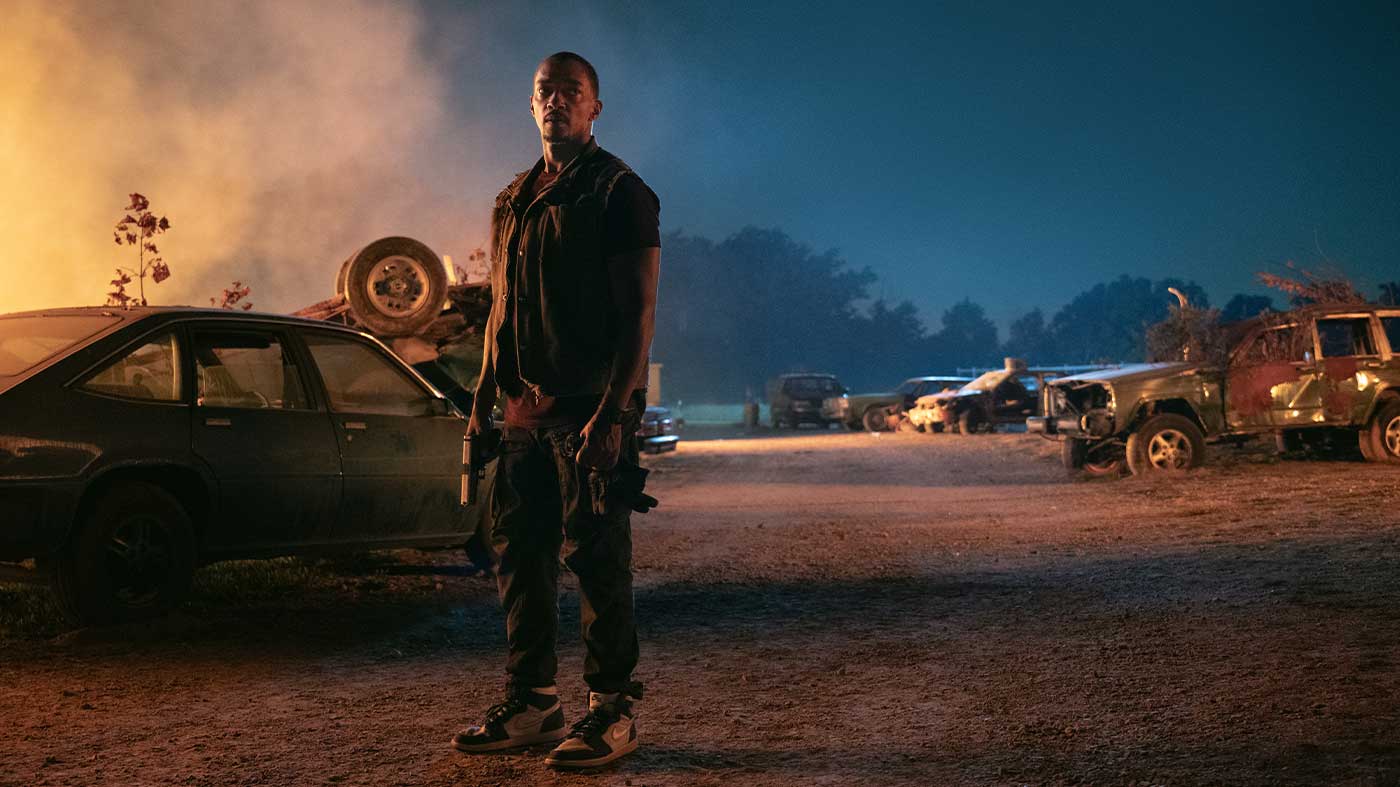

Although the second series picks up where the first left off, a casting shake-up sees Neve Campbell’s Raven replaced by Patty Guggenheim’s—a supposed “prime” Raven who operates above Campbell, which is a fun enough in-world explanation for Raven being completely recast. Even so, her motivations for having Doe compete on her behalf in Calypso’s Twisted Metal tournament remain unchanged, as the prize is the fulfilment of a singular wish. In “prime” Raven’s case, she’d use Calypso’s power to rouse her high school girlfriend from the coma she’d been in after being kept alive by machines since an accident during their college years.
Having spent considerable time with the Dolls, an outsider group, Quiet’s goal is slightly more altruistic; she hopes to use the wish to end class divide and bring down every city’s walls. Plenty of other characters find their way into the mix, warring for the series’ MacGuffin, the ability to wish for anything.
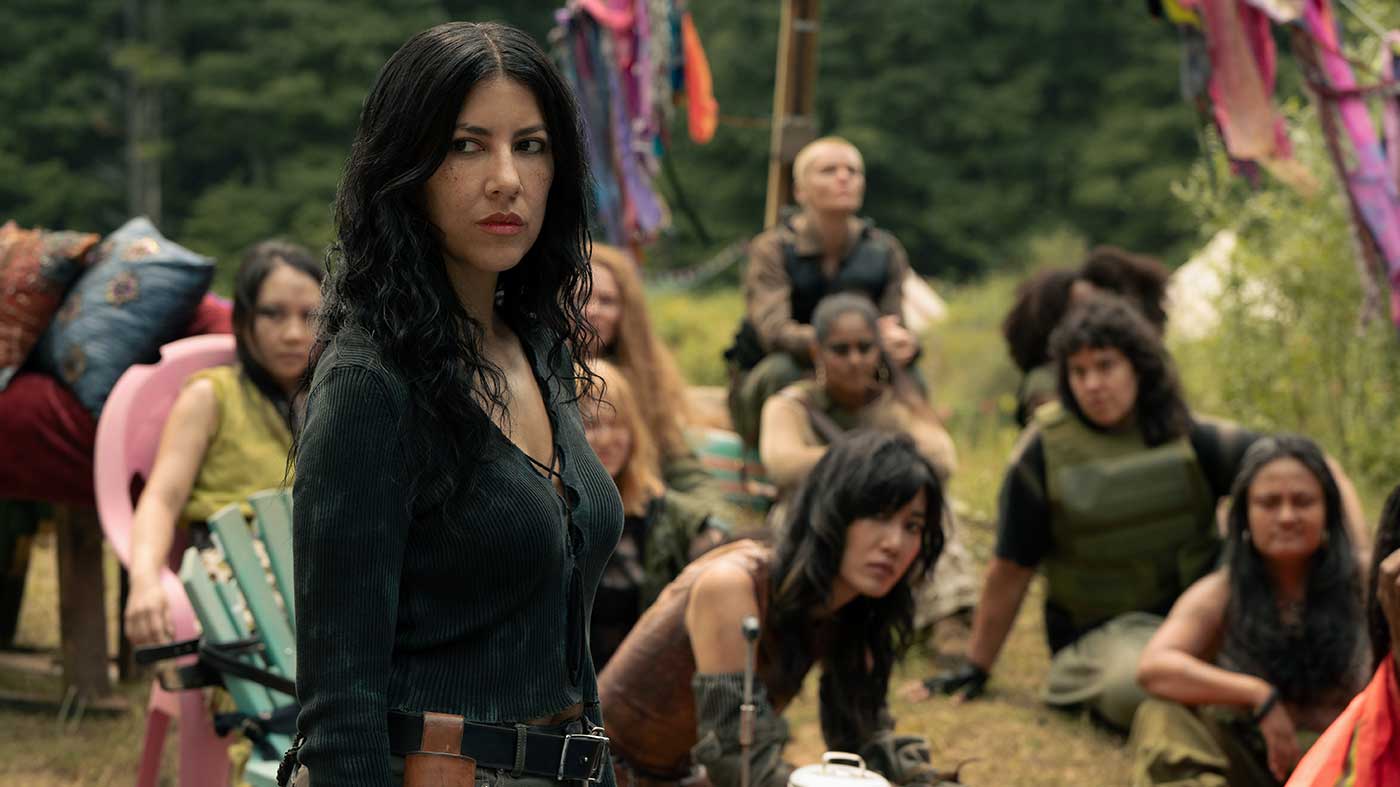

People who spent time with the Twisted Metal games growing up, I expect, would enjoy this season more than first given its singular intent to bring together all of these characters for a violent, winner-take-all tournament. As the grandfather of the vehicular combat sub-genre of racing games, Twisted Metal translates to television better than I expected it ever could. Ridiculous caricatures like Mr. Grimm, Axel, and Vermin are all given small arcs within the season, but even that’s more than Sweet Tooth gets. As much as I adore the combination of Wil Arnett’s off-kilter, gravelly improv and Samoa Joe’s comical physicality, I can’t help but think the iconic character is wasted a little bit in this season despite being a very productive advocate for chaos.
The writing, which ranges from schlock to serviceable, is largely headed up by Rhett Reese and Paul Wernick, whose work together on the Deadpool trilogy should give you an idea of what humour to expect. The season had been previously described as “Mad Max meets The Simpsons” and I think the latter rings true with the gags and callbacks they string throughout.
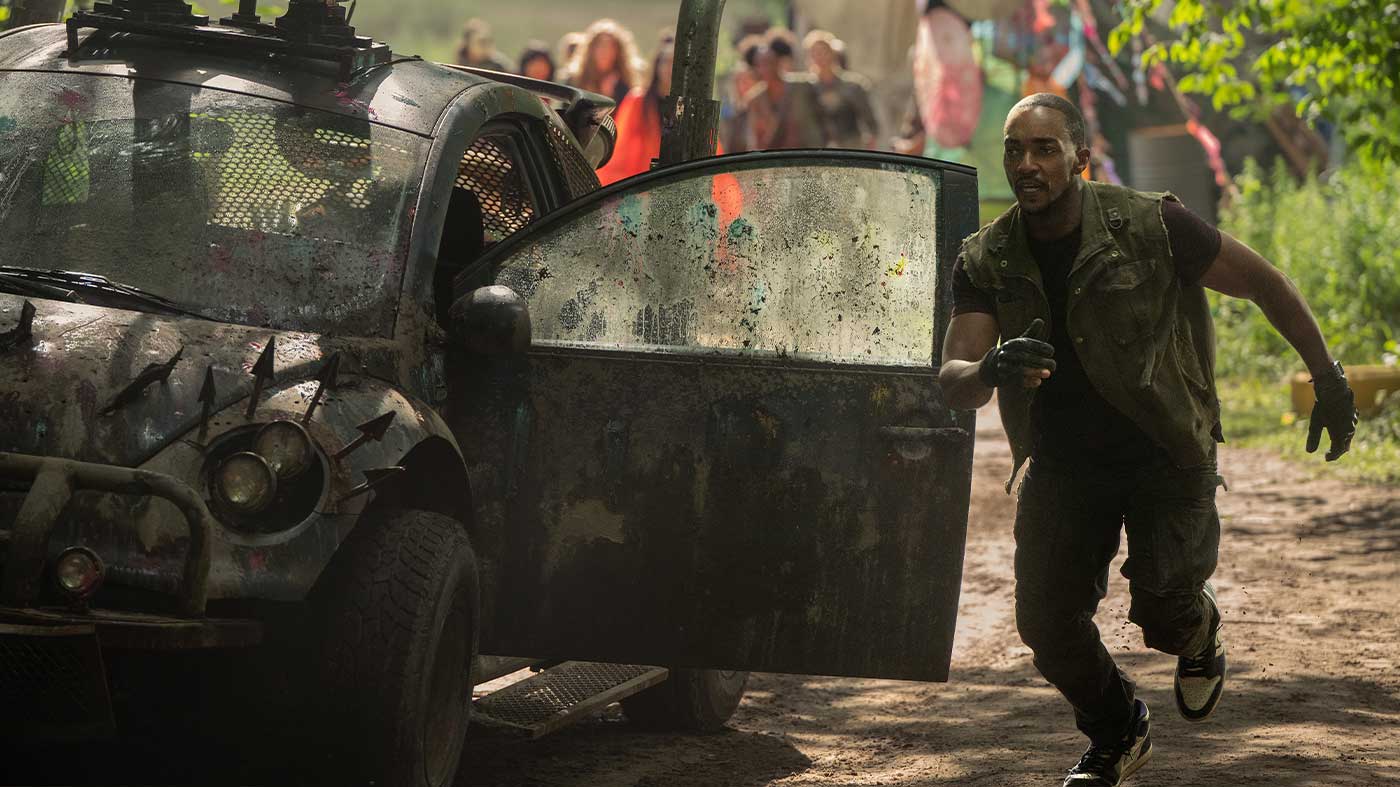

One of the most surprising, and emotionally resonant, through lines of the twelve episode run revolves around a particular issue of The Babysitters Club, which perhaps says it all. The pacing of the season, as a whole, felt a little up and down. Just as it hits top gear, midway through Calypso’s tournament, we park the cars for a surprise prom episode which, granted, is a worthwhile and fun aside and does somehow pay off down the track. Another of my favourite gags is Anthony Carrigan’s enigmatic Calypso beckoning the shellshocked drivers, all in their prom clobber, to the dance floor as “Two Princes” plays.
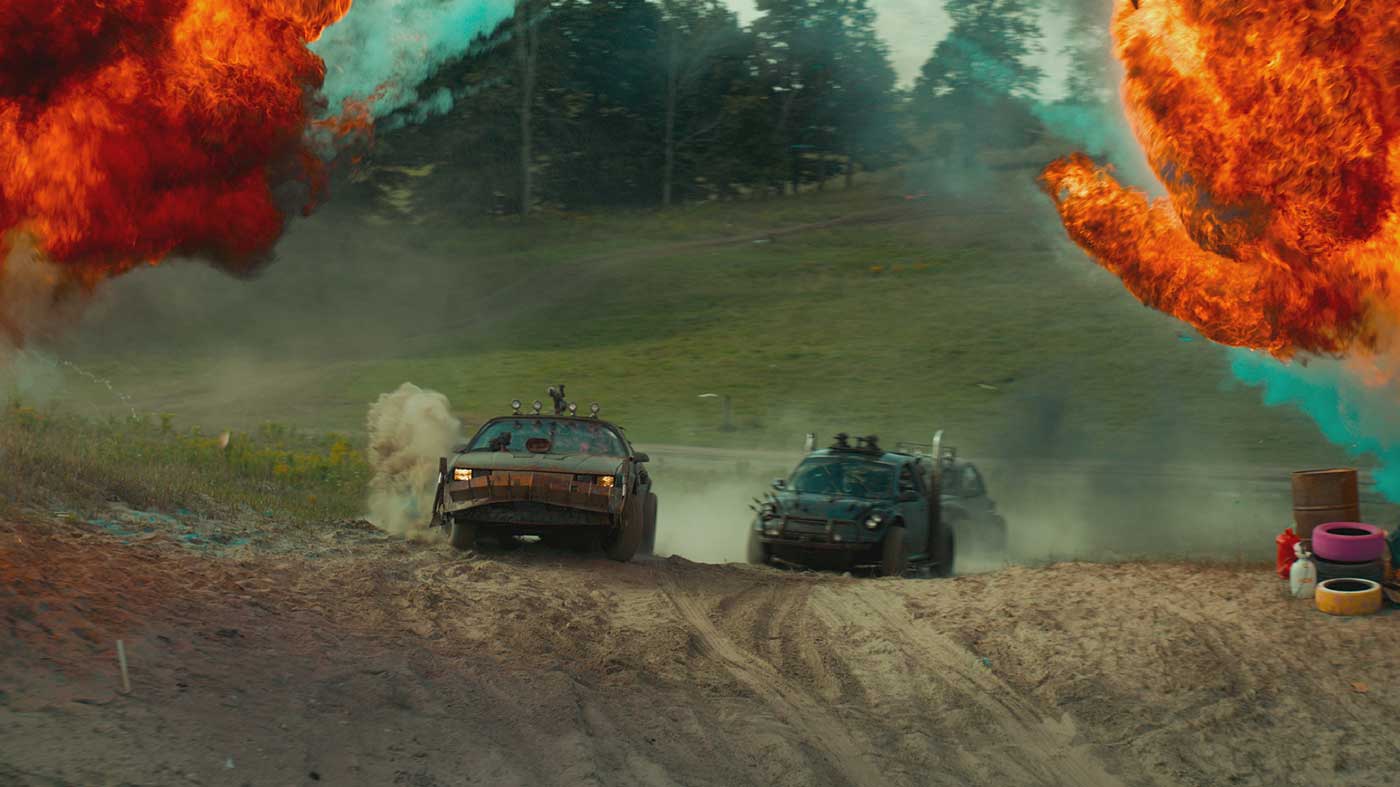

In fact, the licensed music choices made throughout this season are inspired. The music carries a few scenes when the budget can’t quite shoulder the expectation. There’s a long drawn out, sprint race to Tournament City that, were it not for the soundtrack, might have fallen a tad flat. It’s a Fast and Furious-esque race down an impossibly long airport runway set to “Dragula” that goes off thanks purely to the song choice alone. I feel like anyone who tunes their dial into Triple M might really enjoy the soundtrack from top to bottom.
Twisted Metal’s season series, much more than the first, captures the spirit of the game itself. Even if it can lean Temu Fury Road at times, there’s enough shocking, surprising, and graphic violence to please fans. I don’t necessarily think the direction of the season made it easy to give closure to stories set up for the likes of Grimm, Raven, or Axel, and if this is the last we see of them, I’d argue their endings were an outright fumble. With that said, they were able to find the fun within Twisted Metal’s admittedly silly subject matter, and there’s a lot of heart. It might not all pay off, but as the series moves forward, the “buds who fuck” chemistry of Mackie and Beatriz serves a solid enough bedrock to build upon.
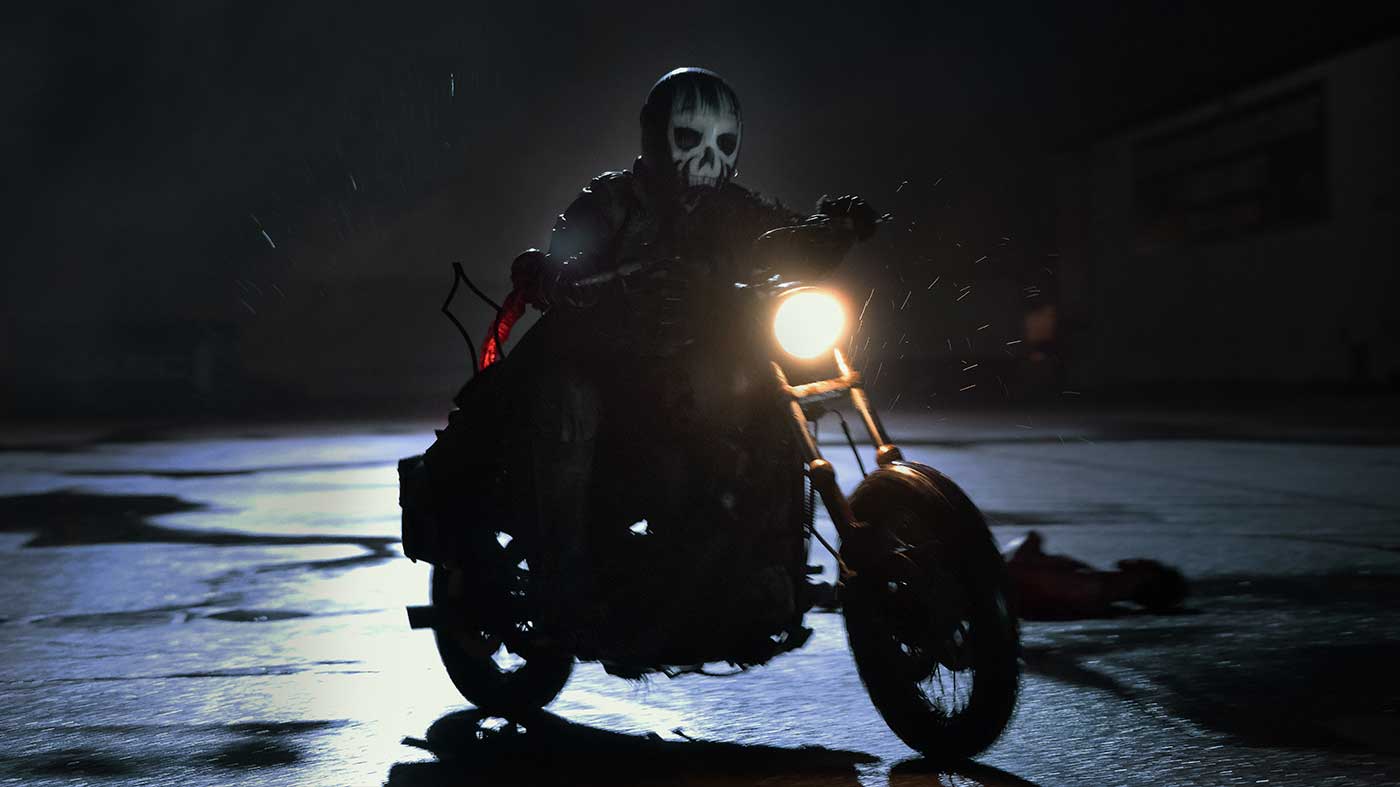

The biggest compliment I can pay to Twisted Metal, with this season in particular, and as someone who grew up primarily as a Carmageddon kid, is that it has made me want to play the game. The most unfortunate thing about that fact is PlayStation haven’t been able to capitalise with a new release, or even a port as they’ve been able to with The Last of Us. I had such fun with the show that I’m shocked they didn’t work harder to create a bit of trans media synergy.
Twisted Metal Season 2 is available to stream exclusively on Stan with new episodes dropping every Thursday night.

